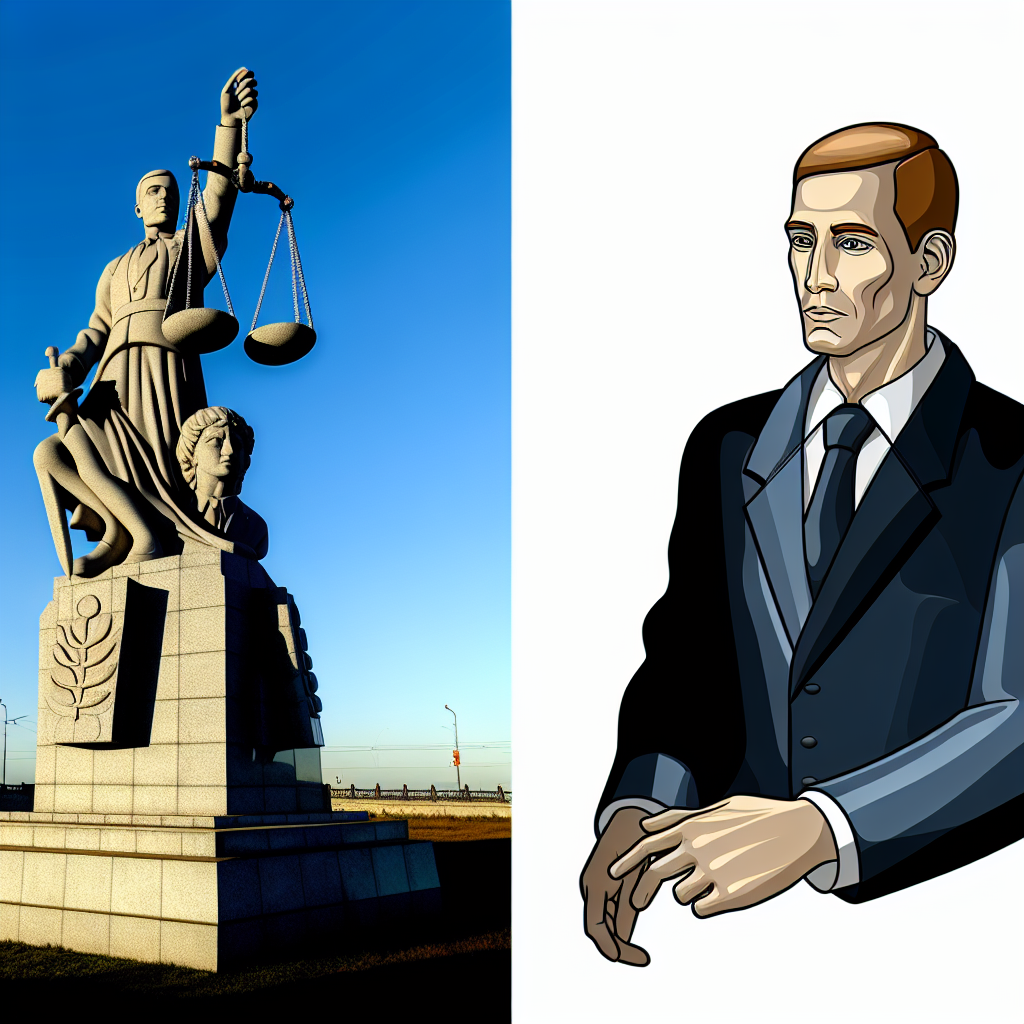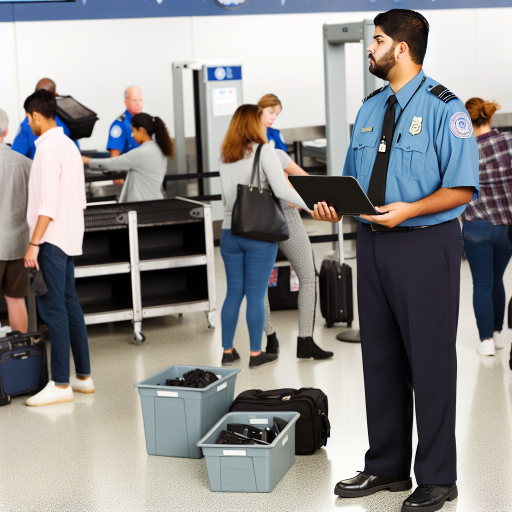Introduction:
The Secret Service profession plays a crucial role in protecting national security.
Ethics and integrity are vital in maintaining trust and credibility.
The Role of Ethics in the Secret Service Profession:
Define Ethics: Ethics refers to a set of moral principles that govern a person’s behavior or the conducting of an activity.
Importance of Ethics in Guiding the Conduct of Secret Service Agents:
- Ethics serve as a compass for Secret Service agents, guiding their decisions and actions.
- They help maintain the trust of the public and ensure professionalism within the agency.
- Ethics set the standards for integrity, honesty, and accountability in the Secret Service profession.
- Adhering to ethical principles ensures that agents uphold the law and fulfill their duties responsibly.
- Without ethics, the Secret Service may engage in unethical behavior, compromising national security and public safety.
How Adherence to Ethical Standards Ensures the Protection of the Public and National Security:
- Ensuring Trust: When Secret Service agents adhere to ethical standards, the public trusts them to protect the nation and its leaders.
- Promoting Accountability: Ethical conduct holds agents accountable for their actions, ensuring transparency in their operations.
- Protecting National Security: By upholding ethical standards, agents safeguard sensitive information and prevent breaches that could jeopardize national security.
- Minimizing Corruption: Ethical behavior reduces the risk of corruption within the Secret Service, preserving the integrity of the agency.
- Enhancing Public Safety: When agents prioritize ethics, they prioritize the safety and well-being of the public above personal gain.
Ethics are the foundation of integrity and professionalism in the Secret Service profession.
Adhering to ethical standards not only ensures the protection of the public and national security but also upholds the reputation and credibility of the agency.
Secret Service agents must embody ethical principles in their daily operations to fulfill their duty of serving and safeguarding the nation.
The significance of integrity in the Secret Service profession:
Integrity is the quality of being honest, trustworthy, and having strong moral principles.
It plays a crucial role in building trust and credibility within the Secret Service agency and with the public.
Integrity is the foundation on which trust is built.
Secret Service agents must demonstrate integrity in all aspects of their work to earn the trust of their colleagues and the public.
Integrity is essential for establishing credibility.
By consistently behaving in an honest and ethical manner, Secret Service agents enhance their credibility and reputation both within the agency and in the eyes of the public.
Integrity influences the decision-making process of Secret Service agents.
When agents have a strong sense of integrity, they are more likely to make ethical decisions that align with the values of the agency and prioritize the safety and security of the individuals they are tasked to protect.
Integrity shapes the actions taken by Secret Service agents.
In situations where agents must make split-second decisions that could have life-or-death consequences, their integrity guides them to act in accordance with the law, agency policies, and moral values.
This ensures that their actions are just and ethical.
Learn More: Physical Fitness Requirements for Security Agents
Ethical Challenges Faced by Secret Service Agents:
Identifying common ethical dilemmas encountered by agents in the line of duty is crucial to understanding the complexities of their profession.
Transform Your Career Today
Unlock a personalized career strategy that drives real results. Get tailored advice and a roadmap designed just for you.
Start NowHere are some of the most prevalent challenges:
- Conflict of interest: Agents may face situations where personal interests conflict with their professional obligations.
- Confidentiality breaches: Maintaining secrecy is paramount in the Secret Service, but agents may be tempted to disclose sensitive information.
- Use of excessive force: In high-pressure situations, agents may resort to aggressive tactics that may be deemed unethical.
- Compromising investigations: Agents may be pressured to overlook crucial evidence or cut corners to expedite cases.
It is evident that these ethical dilemmas can have far-reaching consequences not only for the agents themselves but also for the reputation and effectiveness of the Secret Service as a whole.
Let’s delve into the potential impacts of unethical behavior:
- Damaged reputation: Any instance of unethical behavior can tarnish the image of the Secret Service and undermine public trust.
- Legal ramifications: Violating ethical standards can lead to legal repercussions, affecting both individual agents and the organization.
- Decreased effectiveness: Unethical behavior can compromise the ability of agents to perform their duties effectively, risking national security.
- Erosion of integrity: Upholding high ethical standards is paramount in the Secret Service. Any breach can erode the integrity of the institution.
These ethical challenges underscore the importance of rigorous training, clear guidelines, and robust oversight mechanisms within the Secret Service to ensure that agents uphold the highest standards of ethics and integrity in their profession.
See Related Content: Forensic Scientist: Career Path and Education Guide
Strategies for Promoting Ethical Behavior in the Secret Service:
- Highlight the importance of leadership in setting a tone of integrity within the agency.
- Discuss training programs and accountability measures aimed at fostering ethical decision-making among agents.
Leadership:
Leaders in the Secret Service play a crucial role in promoting ethical behavior within the agency.
By setting a tone of integrity at the top, they create a culture where honesty and ethical conduct are valued.
Leaders should lead by example, demonstrating their commitment to upholding high ethical standards in all aspects of their work.
By consistently prioritizing integrity, they inspire their subordinates to follow suit, creating a ripple effect throughout the organization.
Training Programs:
Implementing comprehensive training programs is essential for instilling ethical values and principles in Secret Service agents.
These programs should focus on ethical decision-making, conflict resolution, and the importance of upholding the agency’s code of conduct.
Training sessions can include case studies, role-playing exercises, and discussions on real-world ethical dilemmas agents may face in the field.
By providing agents with the necessary tools and knowledge, they can make informed decisions that align with the agency’s ethical standards.
Accountability Measures:
Establishing accountability measures is critical for enforcing ethical behavior in the Secret Service.
Agents should be held responsible for their actions and decisions, with consequences for unethical conduct clearly defined.
Regular performance evaluations can assess agents’ adherence to ethical guidelines, identifying areas for improvement and providing opportunities for corrective action.
By holding agents accountable for their behavior, the agency sends a clear message that ethical violations will not be tolerated.
See Related Content: Challenges Faced by School Resource Officers Today
Case studies of ethical misconduct in the Secret Service:
One case involved an agent soliciting a prostitute in Colombia, tarnishing the agency’s reputation.
Another incident saw agents consuming alcohol while on duty, jeopardizing national security.
Transform Your Career Today
Unlock a personalized career strategy that drives real results. Get tailored advice and a roadmap designed just for you.
Start NowA more recent case revealed agents taking selfies with President Trump’s grandson, breaching protocol.
Examine real-life examples of past incidents:
In 2012, agents were caught soliciting prostitutes during a presidential trip to Colombia.
The 2014 White House fence-jumping incident exposed lapses in security procedures.
In 2016, an agent left a firearm unattended in a restroom, endangering the public.
Analyze the repercussions of such misconduct:
These incidents eroded public trust in the Secret Service’s ability to protect the president.
The agency’s credibility suffered, leading to calls for reforms and increased oversight.
Secret Service agents faced disciplinary actions, including firings and suspensions.
The impact on the reputation of the Secret Service:
The repeated ethical lapses damaged the agency’s standing as a premier protective service.
Media scrutiny highlighted systemic issues within the Secret Service’s culture and leadership.
The public perception shifted from admiration to skepticism towards the agency’s professionalism.
Uncover the Details: How to Develop a Personal Protection Plan

The impact of ethical leadership on the Secret Service:
Ethical leadership plays a crucial role in shaping the ethical culture and practices within the Secret Service.
Leaders set the tone for the organization, and their commitment to ethical principles significantly influences the behavior of their subordinates.
By prioritizing integrity and accountability, ethical leaders create a work environment where honesty, transparency, and fairness are valued.
One of the primary responsibilities of ethical leaders in the Secret Service is to establish and communicate clear ethical standards.
They must outline expectations for ethical conduct, provide guidance on ethical dilemmas, and enforce consequences for unethical behavior.
By setting a strong ethical framework, leaders help create a culture of integrity where employees understand the importance of upholding ethical values.
Ethical leadership also plays a key role in fostering trust and confidence within the agency and the public.
When leaders demonstrate a commitment to ethical behavior, they inspire confidence in their followers and earn their trust.
Secret Service agents who trust their leaders are more likely to follow ethical guidelines and perform their duties with integrity.
Transform Your Career Today
Unlock a personalized career strategy that drives real results. Get tailored advice and a roadmap designed just for you.
Start NowFurthermore, ethical leaders serve as role models for their subordinates.
By demonstrating ethical behavior in their actions and decisions, leaders set an example for others to follow.
When employees see their leaders acting with integrity, they are more likely to emulate those behaviors and uphold ethical standards in their own conduct.
In addition to promoting a culture of integrity, ethical leadership also has numerous benefits for the Secret Service.
When leaders prioritize ethical behavior, they help prevent misconduct, fraud, and corruption within the agency.
By promoting accountability and transparency, ethical leaders create a work environment where unethical behavior is not tolerated.
Moreover, ethical leadership enhances the reputation of the Secret Service and builds public trust.
When leaders demonstrate a commitment to ethical values, they reassure the public that the agency operates with integrity and upholds high ethical standards.
This public trust is essential for the effectiveness and credibility of the Secret Service.
Ethical leadership is essential for promoting a culture of integrity and accountability within the Secret Service.
By setting clear ethical standards, leading by example, and inspiring trust and confidence, ethical leaders play a crucial role in shaping the ethical practices of the agency.
Ultimately, ethical leadership benefits not only the organization but also the individuals it serves and the public at large.
Potential Legal Ramifications:
Legal consequences may include civil or criminal charges against the agent.
Violations of laws or regulations can lead to lawsuits, fines, or imprisonment.
Loss of security clearance and job termination are possible outcomes.
Public scrutiny and damage to one’s reputation are also inevitable.
Professional Ramifications:
Erosion of trust between the Secret Service and the public occurs.
Diminished credibility and integrity of the agency are at stake.
Reduced effectiveness in carrying out their duties is a significant issue.
Negative impact on morale and team dynamics within the organization.
Transform Your Career Today
Unlock a personalized career strategy that drives real results. Get tailored advice and a roadmap designed just for you.
Start NowWhen ethical failures occur within the Secret Service, the long-term implications on the agency are profound.
It jeopardizes the organization’s ability to uphold its core responsibilities and maintain public trust, which are essential for the successful execution of their mission.
Ethics and Integrity in the Secret Service
Ultimately, ethics and integrity are foundational principles in the Secret Service profession.
Upholding these values is crucial in maintaining trust, credibility, and accountability within the agency.
By adhering to high standards of ethical behavior, agents can better fulfill their mission of protecting the nation’s leaders and upholding the rule of law.
Furthermore, the reputation of the Secret Service is directly tied to the ethical conduct of its agents.
Any breach of integrity not only tarnishes the agency’s image but also undermines its effectiveness in carrying out its vital responsibilities.
Therefore, a strong culture of ethics must be instilled at every level of the organization to ensure that integrity remains at the forefront of all operations.
Ethical behavior is not just a moral imperative but a strategic necessity for the Secret Service.
By prioritizing ethics and integrity in their daily duties, agents can uphold the values of the agency.
They can fulfill their oath to protect and serve with honor and distinction.
Only through unwavering commitment to ethical conduct can the Secret Service maintain its mission and reputation as a premier law enforcement agency dedicated to safeguarding the nation’s security.




